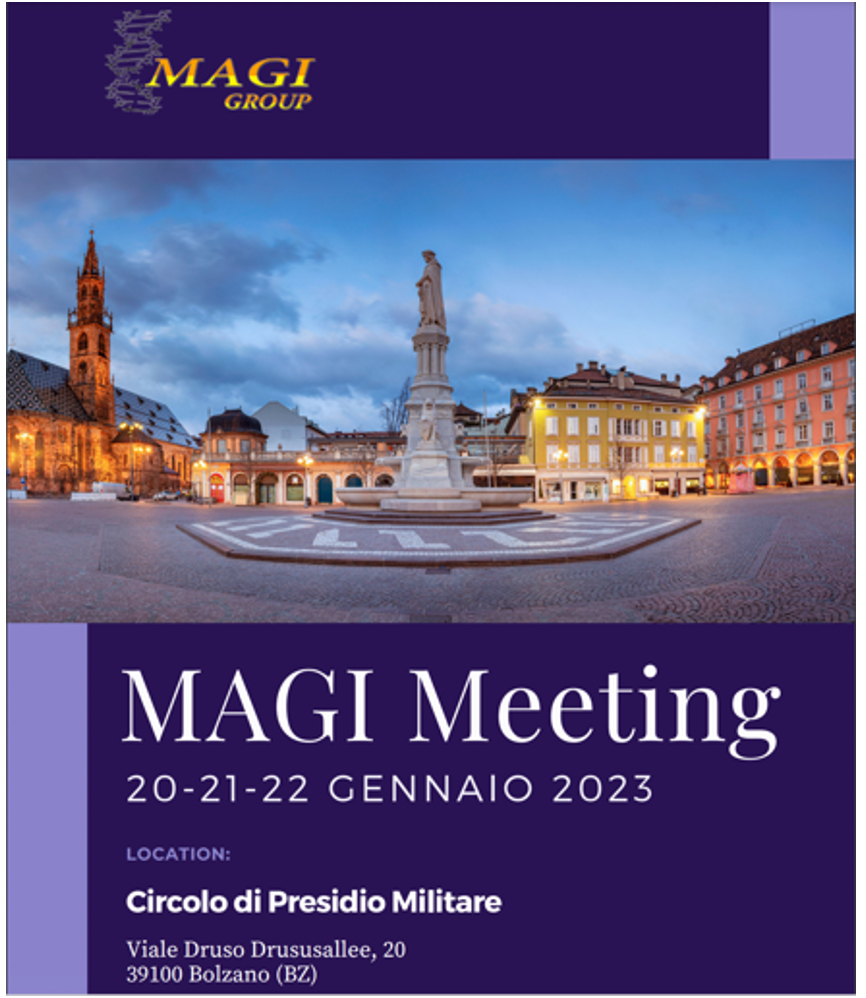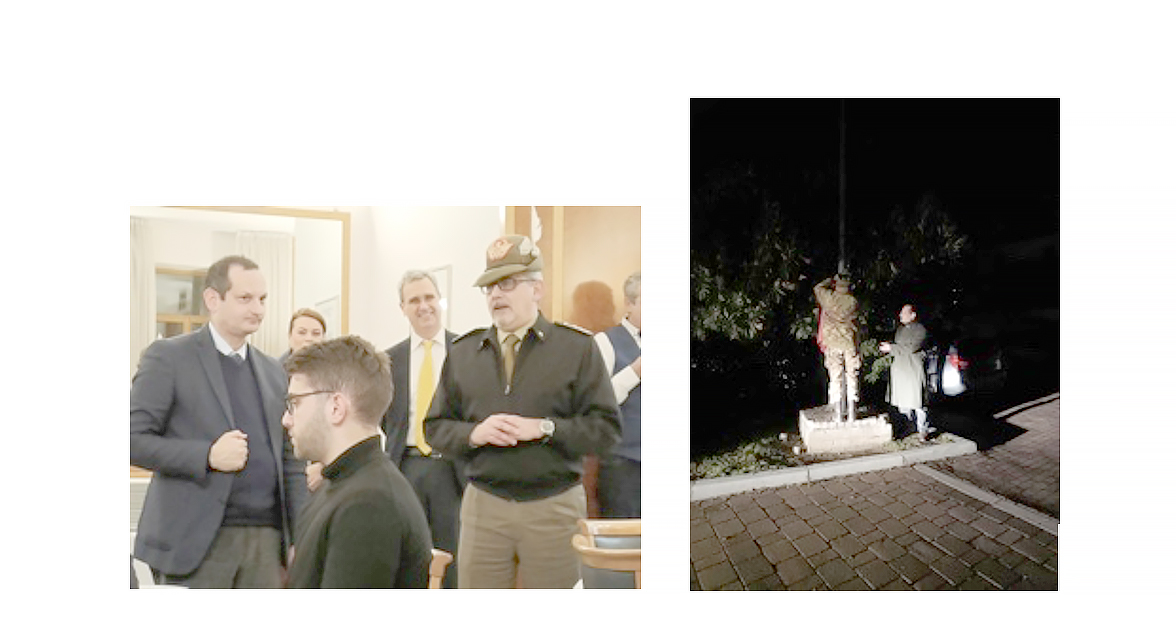Genetics and Metabolomics of: Cardiology, Obesity, Anorexia, Lymphedema, Lipedema, Tumors, Infertility, Retina, dermatologic diseases and neurology.
 As per tradition also this year Matteo Bertelli, with his ever-growing group of collaborators, organized the Magi’s Lab meeting dedicated to updates on Genetics and Metabolomics studies conducted with the various study groups at the national level. The work was held at the Meeting Room of the Bolzano Presidium Circle and was actively attended by Medical Specialists, Biologists, Biotechnologists and university and hospital health workers from all over Italy. The presentations covered the many areas of medicine in which genetic and metabolomic studies range and, with regard to Lymphedema and Lipedema, proved, as in other circumstances, to be rich in innovative insights for the organization of clinical and experimental research.
As per tradition also this year Matteo Bertelli, with his ever-growing group of collaborators, organized the Magi’s Lab meeting dedicated to updates on Genetics and Metabolomics studies conducted with the various study groups at the national level. The work was held at the Meeting Room of the Bolzano Presidium Circle and was actively attended by Medical Specialists, Biologists, Biotechnologists and university and hospital health workers from all over Italy. The presentations covered the many areas of medicine in which genetic and metabolomic studies range and, with regard to Lymphedema and Lipedema, proved, as in other circumstances, to be rich in innovative insights for the organization of clinical and experimental research.

In particular, collaborations with other foreign locations (including the University of Oxford) with whom they share experiences on particular cases of Lymphedema, which are being continuously investigated, were discussed, and the initiation of genetic research also on some secondary forms of Lymphedema was mentioned. Also speaking during the proceedings was the former Health Councillor of the Province of Bolzano, who emphasized the area’s focus on scientific research, a harbinger of ever new solutions aimed at people’s physical and mental well-being.

On Lipedema great is the interest of the entire international scientific community, and the Italian group is contributing substantially to new discoveries in the field. After discovering in fact, in 2020, the first gene responsible for non-syndromic Lipedema, studies are currently focusing on three specific areas: 1) the discovery of at least three new candidate genes (through the segregation study conducted on family members of subjects found to have a suspected genetic polymorphism for the purposes of disease determinism) and the study of somatic genes (i.e., found in affected tissue and not in blood or healthy tissue) that, if mutated only at the level of the affected tissue, may be determinant for the purposes of clinical manifestation. 2) the anatomopathological study by light and electron microscopy of diseased tissue in comparison with healthy tissue from the same subject, which is showing important quantitative and qualitative differences worthy of attention and harbingers of interesting insights also for the purposes of forthcoming noninvasive treatments. 3) the functional study of RNA that is proving to be, again, different between healthy and affected tissue, a topic of current specific investigation.
But the most interesting novelty (it was talked about insistently during the working days and relatively to all fields of medicine concerned) is the possibility of carrying out the so-called ‘Liquid Biopsy’ study, already in use at present for the study and monitoring over time of some forms of cancer. The latter is based on the principle that every tissue, in its physiological turnover, loses cells over time that are degraded and whose DNA content, flaky, circulates in the blood and can be studied in a targeted manner with respect to certain traits of the protein chain, simply by taking a peripheral blood sample. In a nutshell, with the study, it is possible to highlight whether there is a tumor site in the body (e.g., pancreatic cancer) even in the absence of clinical symptoms, and once detected and treated, it is possible with the same technique, to monitor its behavior over time.
Similarly, it is being considered to apply, in the very near future, the technique for the study of flaking DNA chains from tissues with Lymphedema or with Lipedema: this, probably, will allow to increase the cases of positivity to the genetic test (currently in a small percentage compared to all the cases examined) and to discover new genes responsible for Lymphedema and Lipedema, with the interpretation of the mechanisms of action of which it will be possible to find new therapeutic paths.
On the sidelines of the proceedings, at 6 p.m. the entire working group was able to attend the classic flag lowering ceremony and, in the course of the convivial dinner at the greeting of the General of the Alpini, Commander of the Facility, who wished a peaceful and fruitful course of the working sessions.
 At the end, as usual, there was a now customary but always extremely interesting and constructive meeting for January 2024.
At the end, as usual, there was a now customary but always extremely interesting and constructive meeting for January 2024.
Dr. Sandro Michelini
Bolzano 22 Gennaio 2023




